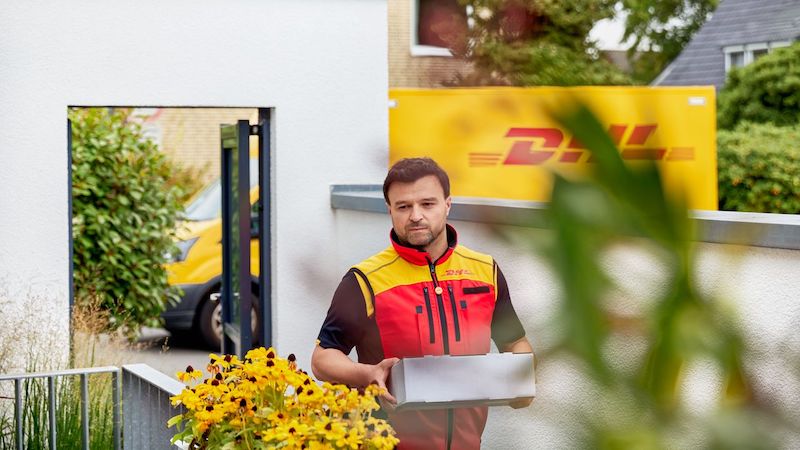Grow your business with the Discover newsletter
Logistics advice & insights straight to your inbox
Subscribe now
With the rising demand of customers, many businesses now need a robust strategy to ensure a fast and effective shipping process. In fact, delivering products on time is crucial for businesses, as late or even failed deliveries can have a significant impact. Not only does it upset customers who are expecting to receive their purchase, but it can also lead to lost sales and damage business reputation.
In Loqate’s report on ‘Fixing Failed Deliveries 2021: Stamping Out Faulty Fulfilment’, 8% of first-time deliveries fail at an average cost of US$17.20 in the United States. About 7% of failed deliveries in Germany and 6% in the United Kingdom cost business an average €14.69 and £11.60 apiece respectively. In addition, 45% of American businesses also incur a chargeback cost of between US$1 and US$20 for each failed delivery, which 55% of British and 54% of German businesses can relate to.
The costs can add up quickly, especially for businesses that have a high volume of deliveries. As the final step in fulfilling a customer’s order, last mile delivery not only plays a critical role in the overall customer experience but also saves businesses both time and money. Businesses that can effectively manage this will have an advantage over many of their competitors.
Based on a survey in 2017 by Statista, it was found that around 73% of e-commerce logistics concentrate on improving their communication with their last mile consumers to enhance their experience. It is essential for businesses to have a good understanding of this important process to minimise errors.
The last mile delivery process is usually conducted in a few stages. First, the orders sent in by shoppers are digitally recorded into a centralised system. This system confirms the availability of the stock and offers payment options for them.
Next, the orders are delivered to a transportation hub for processing. At this stage, orders are assigned to a delivery personnel with relevant details. This includes recommendations on the route to take and the location where the order is to be sent. Finally, the orders are scanned and loaded onto delivery vehicles to be sent out to the customer.
Most consumers do not have a good understanding of the supply chain process and will rate a merchant according to their service delivery standards, including last mile delivery. Without reliable last mile delivery, customers don’t have the confidence that their orders will reach safely and on time. This could harm the profitability and reputation of the business, resulting in loss of potential and existing customers.



Here, we will discuss some of the benefits last mile delivery solutions bring to businesses.
Many last mile delivery solutions can automate tasks within the shipping process, saving time, resources, and money for businesses. For instance, a study from Salesforce quoted that a majority of IT leaders have stated that automation helps employees save 10% to 50% of the time they used to spend on manual tasks. There are many ways to manually track, such as receipts written by hand and notes without barcodes. However, these often incur human errors.
Automated last mile delivery systems eliminate such issues. They also ensure correct and effective load planning. These systems empower businesses with foretelling insights and automatic allocation of resources such as modes of transportation and inventories.
When it comes to making deliveries, there are a number of factors that can impact the process. High traffic levels can make it difficult to reach a destination in a timely manner, while sudden disruptions to routes can result in delays. In some cases, extreme weather can even result in road closures. In fact, based on the Federal Highway Administration report, weather is responsible for 23% of all roadway delays, accounting for over 32 billion lost vehicle hours per year.
Hence, it is suitable for businesses to consider adopting a dynamic delivery route optimisation software. This software is able to calculate and assign the most effective route for different deliveries. Additionally, they are able to give warnings in real-time to delivery personnel of any traffic jams or poor weather and suggest alternative routes based on the situation.
It is inevitable to prevent delays from happening due to unexpected situations and events. According to Accenture, 94% of Fortune 1000 companies have seen supply chain disruptions as a result of COVID-19.
However, some measures can be put in place to combat this. For instance, businesses can provide information to their consumers about delays. Doing so enables customers to be well-informed on the situation and adjust their expectations accordingly. By taking these steps, businesses can demonstrate their commitment to customer satisfaction and maintain a reliable brand image.
DHL Express offers quality logistics solutions such as last mile deliveries. For instance, customers can track the status of their parcels with end-to-end visibility and value-added services such as proactive tracking – which is where the receiver is notified via email or SMS about a shipment’s progress. With a wide range of services such as time definite and day definite delivery, businesses are able to stay agile and competitive in the market. Open an account with DHL Express and get started today.